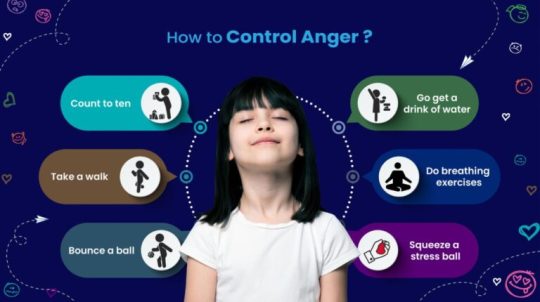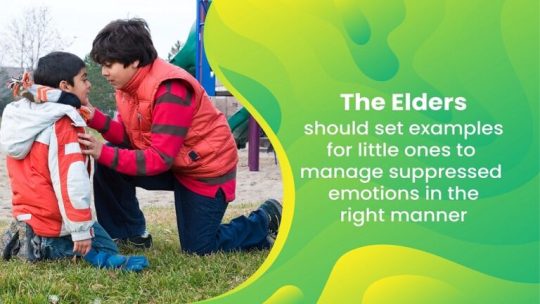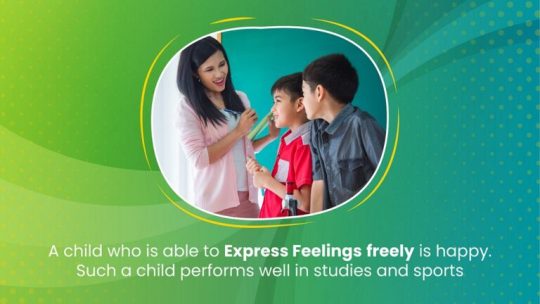#CENTRAL BOARD OF SECONDARY EDUCATION
Text
Auditorium in Top CBSE School in Indore | Advance Academy
Lectures and award ceremonies are only a couple of the formal activities that take place in our auditorium at the Top CBSE schools in Indore. The venue has private practice sessions for the band and is big enough to hold a larger audience.
#Best auditorium#central board of secondary education#CBSE central board of secondary education#CBSE schools#best schools in indore#best cbse school in india#top schools in indore#list of cbse schools in india
9 notes
·
View notes
Text
St. Francis World School: Leading the Way in Holistic Education Excellence
St. Francis World School proudly stands as an innovative co-educational CBSE School in Meerut committed to igniting a passion for learning and preparing students for life in an ever-changing world. Established by the Mario Educational and Charitable Society, Delhi, this joint venture unites eminent educationalists, philanthropists, and socially conscious individuals dedicated to excellence in education.
#cbse affiliated school in meerut#top 10 icse schools in meerut#educate yourselves#educate yourself#cbse school in meerut#educación#central board of secondary education#english medium school in meerut#top 10 schools in meerut cbse
0 notes
Text
What are ‘anger-free zones’ for CBSE schools in India?

The Central Board of Secondary Education has directed schools to manage ‘anger’ to endure a fun learning environment and happy school. Schools have been asked to convert the premises into ‘Anger-Free Zone’ or ‘No-Anger Zone’.

Anurag Thripati
CBSE, Secretary
There are many ways to promote mental well being in children. Just as food nourishes the body, certain habits are required to nurture brain cells. It is vital for an overall mental state. As children are quite sensitive, schools now have to focus on their emotional stability. CBSE schools, to become ‘Anger-Free Zones’, are required to make space for this new development. It will help students to develop the right skills and a balanced state of mind as they study.
Are there ways Siddhartha Public School is geared to address this vital framework? Yes. As the best CBSE school in Hyderabad the management works on current trends to safeguard all children enrolled for academics.
This post throws light on some of the ways it promotes the concept of ‘Anger-Free Zone’ for its students’ well being.

What exactly are ‘anger-free zones’ for schools in India?
In this concept everyone has to manage ‘anger’ and this not only includes students but also teachers, parents and other instructors. The elders set examples for little ones so they are able to manage suppressed emotions. Some ways to promote include smiling genuinely and responding to greetings to each other. Breathing exercises and talking calmly can be encouraged. As most children and teachers are now online it is equally important to practice switching off from digital activity, cell phones and constant screen time. Keeping time off (at least 30 minutes) for oneself allows even young children to be mindful.
Why focus on anger (management)?
Anger is a result of suppressed emotions. Children cannot talk back to parents and teachers. They keep themselves shut off or either release it in the form of tantrums or unacceptable behavior. This anger is often a result of being humiliated or compared, fear of rejection or being scolded. It is also true that children feel disrespected and shamed. It takes the form of resentment towards parents or teachers.

Benefits of anger-free zones
A child who is able to express feelings freely is happy. Such a child performs well in studies. Both parents and teachers need to identify areas, which diffuse tense situations and help children to become better adults. It is important to be healthy, wealthy and emotionally strong. Positive manners reflect on active performance in a huge way. All schools have been asked to take the initiative forward and implement the same.
As per the circular of CBSE secretary Anurag Thripati at least one day in a month will be allocated to mental health for children in all schools. Art and physical education will be tapped as be considered ‘anger-free zones’. A universal happy environment will add to the initiative to be more successful.
Siddhartha Public School, a CBSE facility in Hyderabad is also taking up teacher-student mentoring to welcome a happy ambience. We also plan to announce the same on social media to encourage others to do the same.
#Siddhartha Public School#CBSE#CBSE secretary Anurag Thripati#CBSE schools#best CBSE school in Hyderabad#Central Board of Secondary Education
1 note
·
View note
Text
The Central Board of Secondary Education (CBSE) is one of India's most prominent and sought-after educational institutions.
0 notes
Text
#Central Board of Secondary Education (CBSE)#NationalAutomobileOlympiad 2024#designed#automobileindustry#electronicsnews#technologynews#Automotive Skills Development Council
0 notes
Text
https://student.aasvidyalaya.com/cbse-board-online-classes
The Central Board of Secondary Education (CBSE) is one of India's most prominent and sought-after educational institutions.
0 notes
Text
Discover the Best Residential Schools in Sonipat: Rishikul Vidyapeeth Leads the Way
When it comes to finding the best residential schools in Sonipat, Rishikul Vidyapeeth stands out as a premier institution that combines academic excellence with holistic development. Nestled in the serene environment of Sonipat, this prestigious school has been nurturing young minds and shaping future leaders for decades.
Why Choose Rishikul Vidyapeeth?
Legacy of Excellence
Rishikul Vidyapeeth has a rich history of providing quality education that dates back several decades. The school is known for its commitment to fostering an environment where students can excel academically, socially, and personally. Its impressive alumni base and consistent top performance in board exams speak volumes about its dedication to educational excellence.
World-Class Infrastructure
The sprawling campus of Rishikul Vidyapeeth is equipped with state-of-the-art facilities that provide students with the best possible learning environment. From modern classrooms and science labs to extensive sports facilities and a well-stocked library, the school ensures that students have access to everything they need to succeed.
Holistic Development
At Rishikul Vidyapeeth, education goes beyond textbooks. The school emphasizes the importance of overall development, encouraging students to participate in a variety of extracurricular activities. Whether it’s sports, music, drama, or arts, students are given the opportunity to explore their interests and develop new skills.
Experienced Faculty
The teaching staff at Rishikul Vidyapeeth consists of highly qualified and experienced educators who are dedicated to nurturing young minds. The faculty not only focuses on academic achievement but also mentors students in life skills, critical thinking, and problem-solving.
Safe and Supportive Environment
Safety is a top priority at Rishikul Vidyapeeth. The school provides a secure and supportive environment where students feel safe to express themselves and grow. The residential facilities are designed to make students feel at home, with comfortable living quarters, nutritious meals, and round-the-clock supervision.
Academic Programs and Curriculum
Rishikul Vidyapeeth offers a comprehensive curriculum that is designed to meet the needs of the modern student. The school follows the CBSE (Central Board of Secondary Education) syllabus, which is recognized for its rigorous academic standards. In addition to the core subjects, the school offers a wide range of elective courses, allowing students to tailor their education to their interests and career aspirations.
Extracurricular Activities
Understanding that education is more than just academics, Rishikul Vidyapeeth offers a rich array of extracurricular activities. Students can engage in various sports such as cricket, basketball, and swimming, or pursue their interests in music, dance, and drama. The school regularly organizes inter-school competitions, cultural events, and educational trips, providing students with ample opportunities to showcase their talents and gain new experiences.
Admission Process
Admissions to Rishikul Vidyapeeth are based on merit and the overall potential of the student. The school conducts an entrance test followed by an interview to assess the student’s academic abilities and personality. The admission process is transparent, and the school ensures that every child who meets the criteria is given a fair chance to join this esteemed institution.
Conclusion
If you are searching for the best residential school in Sonipat, Rishikul Vidyapeeth should be at the top of your list. With its exceptional academic programs, dedicated faculty, and a focus on holistic development, Rishikul Vidyapeeth provides the perfect environment for your child to thrive. Choose Rishikul Vidyapeeth and give your child the gift of a well-rounded education that prepares them for a bright future.
#day boarding schools in india#girls boarding schools#best primary school in delhi ncr#boys residential school#international board schools in delhi ncr
3 notes
·
View notes
Text
BEST CBSE SCHOOL IN PASCHIM VIHAR:
When discussing the best schools, Doon public schools are generally the first to come to mind. Doon Public School stands as the best CBSE board school in Paschim Vihar. Doon Public Schools are fully responsible for their reputation. The Doon School is the best CBSE school in Paschim Vihar when it comes to high-quality education. Famous for its dedication to quality and all-around growth, The Doon School has earned its standing as a leading establishment that promotes extracurricular, academic, and personal development.
The Doon School is the best CBSE school in Paschim Vihar because of its constant commitment to academic success, holistic development, cutting-edge facilities, strong values, individualized support, and parent-teacher partnerships. Parents may choose The Doon School with confidence, knowing that their kids will get an excellent education that will set them up for success in the future.
Academic Prominence:
The demanding academic program at The Doon School aims to encourage pupils and get them ready for success in the future. The Central Board of Secondary Education (CBSE) curriculum, which is renowned for its thorough and well-rounded approach to education, is followed by the school. The school makes sure that kids receive an excellent education that is both effective and entertaining thanks to its team of highly qualified and experienced teachers. Students reach their greatest potential when they receive individualized attention, dynamic instructional strategies, and regular assessments.
Complete Growth:
Education at The Doon School extends beyond textbooks and lecture halls. The school promotes students' physical, emotional, and social well-being because it believes in their entire growth. Students can explore their talents and interests through a variety of extracurricular activities, such as sports, music, dance, theater, and art. Modern facilities at the school, such as music rooms, sports fields, and art studios, encourage these extracurricular activities and assist students' success in a variety of subjects.
Modern Facilities:
Modern infrastructure is one of the main reasons The Doon School is the best CBSE school in Paschim Vihar. The school is proud of its state-of-the-art, technologically advanced classrooms, well-stocked libraries, computer and science labs, and large playgrounds. With the help of these resources, students can explore and experiment in the perfect learning environment, which improves their academic experience.
Put Ethics and Values First:
The Doon School instills in its students a sense of accountability, integrity, and respect by placing a high priority on values and ethics. Students are encouraged to develop into kind and accountable citizens through the school's value-based education program. The curriculum includes regular workshops, community service projects, and moral education classes to help students build strong moral compass skills.
Personalized Care and Assistance:
Understanding that every kid is different, The Doon School offers tailored support and attention to meet a range of learning requirements. Student success is facilitated by the school's committed mentorship and counseling programs. With this personalized approach, each student is certain to receive the support and direction they require to succeed.
Teacher-Parent Collaboration:
The Doon School is a firm believer in the ability of teacher-parent cooperation to promote student achievement. Parents are guaranteed to be actively involved in their child's education through participation in school events, open communication channels, and regular parent-teacher conferences. This collaboration fosters a caring and encouraging atmosphere that benefits the students' overall growth.
Achievements and Recognition:
The Doon School's numerous achievements and honors are a testament to its dedication to excellence. Students who attend the school regularly achieve outstanding academic outcomes, performing exceptionally well on board exams and challenging entrance examinations. The school's standing as the best CBSE school in Paschim Vihar is further cemented by the numerous prizes that its pupils consistently garner from interschool contests.
#school life#school#student#university#learning#college#exams#education#educate yourself#educate yourselves#curly hair#teacher attachment#teacher x student#TEACHER
2 notes
·
View notes
Text
DELHI PUBLIC SCHOOL
Delhi Public School (DPS) is a network of private schools in India and abroad. Founded in 1949 by educationist and parliamentarian, Shri. Ram Chandra Kak, DPS has grown to become one of the largest chains of private schools in India.
DPS schools are known for their academic excellence, holistic education approach, and emphasis on extracurricular activities. They follow the Central Board of Secondary Education (CBSE) curriculum, which is the most widely recognized educational board in India.
2 notes
·
View notes
Text
Best Auditorium for Student Development in Advanced Academy Indore
The Best School in Indore provides a large auditorium for students to celebrate their programs. It is the main activity center of the academy where all the important functions/events of the academy like ceremonies, farewell programs, and teacher's day take place. The auditorium has a performance stage with artist robes, a modern sound system, etc.
#Best auditorium#central board of secondary education#cbse central board of secondary education#cbse schools#best schools in indore#top schools in indore#cbse boarding schools in india#best cbse school
3 notes
·
View notes
Text
Top 10 ICSE Schools in Meerut
https://sfwsmeerut.com/
St. Francis World School ranks among the top 10 ICSE schools in Meerut, offering an exceptional educational experience that combines academic excellence with holistic development. With a dedicated faculty, state-of-the-art facilities, and a nurturing environment, the school prepares students to excel in various fields and become responsible global citizens. Inquire now and enrol your children in the best school.
#cbse school in meerut#english medium school in meerut#top 10 icse schools in meerut#educación#education#central board of secondary education#top 10 schools in meerut cbse#educate yourselves
0 notes
Photo

Check out my profile on Wattpad, I'm St. Froebel School https://www.wattpad.com/stfroebel?utm_source=web&utm_medium=tumblr&utm_content=share_profile St. Froebel School is a co-educational school affiliated to the central board of secondary educational Govt of India New Delhi (CBSE Affiliation No. 2730278) conveniently located in the heart of Paschim Vihar spread across 1.7 acre areas of campus offering state of art facilities for a progressive...
3 notes
·
View notes
Text

THE PRINCESS ROYAL’S FAVOURITE PAINTING: Princess Anne chooses a stirring sea scape that sparks happy childhood memories.
Country Life | Published 29 July 2020
‘I was not a good sailor, but I loved the week to 10 days we had on board Bloodhound . This picture illustrates her in her element and it’s a real sea. We had our roles, even if I was a bit small for most of the sails, but she had a mizzenmast astern, which was perfect for keeping us busy and out of most people’s way. You learnt to cook without realising because we shared duties. I was old enough and strong enough in the last few years to helm. She had a tiller, which was heavy, but also taught you to feel the balance better. I still don’t really understand wheels! Above all, we went to some wonderful places that we have been able to revisit in our own Rustler 44. Bloodhound has a special place in my life and, to me, this is a special picture painted by someone who had the skill to translate his own knowledge and understanding of the sea, and the individual character of a particular vessel, to canvas’
A1936 ocean-racing yacht,Bloodhound was bought in 1962 for the Royal Family at the request of The Duke of Edinburgh, who also commissioned this painting. After a refit, she was sailed by Prince Philip with Uffa Fox at that year’s Cowes Week. Until 1969, when she was sold,Bloodhound would accompany HMYBritannia on the Royal Family’s annual tour of the Western Isles. Today, she is berthed alongside the regrettably de-commissionedBritannia at Leith in Edinburgh.
It was written in an obituary of Deryck Foster: ‘Very few people in this world get to live their dream. Deryck wanted to be an artist and he made a great success out of living his dream.’ He was born in Bournemouth and learned to sail as a boy, taking his secondary education at King’s School Canterbury in Kent and Bournemouth Technical College. During the Second World War, he was a fitter in the RAF, preparing Lancaster bombers, before being posted to India.
De-mobbed, Foster attended the Central School of Arts and Crafts under the inspired principalship of William Johnstone. He then worked as a film animator and showed his marine pictures at the annual London Boat Show. In 1960, he moved with his wife and children to Yarmouth, Isle of Wight, where, as well as painting, he sailed, fished and served as a crewman on the lifeboat. He opened a gallery and sold his work there in the summer, devoting the winter to commissions.
In 1964, he was elected to the Royal Society of Marine Artists. In later life, Foster also made detailed scale models of 18th- and 19th-century ships from natural materials, which became as prized as his pictures.
By kind permission of The Duke of Edinburgh; John Swannell
27 notes
·
View notes
Text
CBSE Schools Digital Teacher
Central Board Of Secondary Education, commonly known as CBSE is constituted in the year of 1952. However, in the year of 1962 the board extended its wings, which not only have PAN India presence, but also spread across various continents.
https://www.digitalteacher.in/blog/cbse-schools-digital-teacher/
#smart classroom#digital classroom#digi class#online learning app#elearning#study online#learning application#online classroom#digital learning#learning app#online learning platform#online education#digital education#online classes#digital class software#digital class solution#online learning#software#technology#education#education technology#smart class#digital teacher#smart class solution#smart classroom software#elearning software#digital teacher#digital teacher canvas
2 notes
·
View notes
Text
Picking the Best CBSE Secondary School in New Delhi: An Aide
Introduction:
With regards to giving quality schooling, New Delhi brags a plenty choice. In the event that you're searching for a CBSE Secondary School in New Delhi, you'll track down a wide exhibit of decisions, from conventional organizations to CBSE Worldwide Schools. In this article, we'll investigate the choices accessible and assist you with tracking down the Best CBSE Secondary School in New Delhi.
CBSE Secondary Schools in New Delhi: An Outline
New Delhi is home to various CBSE (Central Board of Secondary Education) schools. These schools follow the educational plan set by the CBSE board, guaranteeing a uniform and top-notch schooling system. CBSE Schools In New Delhi are known for their exhaustive schedules and all-encompassing way to deal with training.
youtube
Popular CBSE Schools in New Delhi
One of the conspicuous CBSE Secondary Schools in New Delhi is Ambience Public School. With its obligation to greatness and a history of scholarly achievement, Ambience Public School is a top decision for guardians looking for quality instruction for their kids.
CBSE International Schools in New Delhi
Notwithstanding customary CBSE schools, New Delhi is additionally home to CBSE International Schools. These establishments offer a worldwide point of view while sticking to the CBSE educational program. Probably the best CBSE International Schools in New Delhi include:
Ambience Public School: Ambience Public School isn't just a top CBSE school yet additionally offers global projects that improve understudies' worldwide mindfulness and set them up for an inexorably interconnected world.
What Unveils Ambience School Stick Out
Assuming you're explicitly searching for the Best CBSE International School in New Delhi, Ambience Public School merits unique notice. It offers an interesting mix of CBSE educational plan and worldwide openness through different projects, going with it the ideal decision for guardians looking for worldwide instruction for their kids. The school's obligation to greatness, experienced workforce, cutting edge offices, and comprehensive improvement approach makes it a champion choice.
Conclusion
With regards to finding the best CBSE Secondary School in New Delhi or the Best CBSE International School in New Delhi, taking into account your kid's instructive requirements and your family's preferences is significant. Ambience Public School, with its standing for scholarly greatness and worldwide openness, is a top decision in the city. To look further into what Ambience Public School brings to the table, visit their site here.
#Best Schools in New Delhi#CBSE International School in New Delhi#CBSE Secondary School in New Delhi#CBSE Primary School in New Delhi#CBSE Preschool Admission in New Delhi#Youtube
2 notes
·
View notes
Text
The Advanced Placement (AP) program has been a staple of U.S. high schools for over a half-century. The College Board, a nongovernmental organization, created the AP program to provide college-level academic experiences for high school students. Now, with AP courses in dozens of subjects, nearly 23,000 high schools offer at least one AP course, with about 35% of recent high school graduates taking at least one AP course.
The AP program has been the subject of heated debate in recent weeks. As the College Board prepared to roll out a new AP course, AP African American Studies, Gov. Ron DeSantis decried the proposed curriculum for its emphasis on race and racism. That prompted efforts in Florida and other Republican-led states to block the course (and, potentially, other AP courses) unless the College Board agreed to major revisions. The College Board’s subsequent edits to the curriculum led to outcry that it had acquiesced to DeSantis and his colleagues to the detriment of U.S. students.
While the fate of AP African American Studies remains unclear, the public attention on that course has subsided a bit, which provides an opportunity to step back and consider broader questions about the AP program and College Board. The Brown Center invited three experts to weigh in on these questions: Suneal Kolluri, an assistant professor of education at the University of California-Riverside; Stephanie Owen, an assistant professor of economics at Colby College; and Jack Schneider, an associate professor of education at the University of Massachusetts-Lowell.
1. Why do we have AP courses in the first place? Should we be concerned that a nongovernmental organization, the College Board, has so much influence over public school curriculum?
Owen: The AP program was introduced just after World War II as an attempt to better coordinate content and curriculum between secondary and postsecondary schools. The hope was that doing so would increase the number of college entrants and graduates in the U.S., leading to a better-educated and more productive workforce. Today, the AP program serves several ostensible purposes. Students can save time and money by earning college credit or placing out of introductory courses, demonstrate academic rigor for the college admissions process, and—at least in theory—prepare themselves to succeed in college.
Schneider: The AP program was originally created as a way of accelerating learning for the so-called best and brightest. Designed by leaders from selective colleges and elite high schools, the vision squared with the Cold War-era concern about supplying human capital to counter the Soviet Union. Within a decade, though, savvy families were observing that participation in the AP program was giving students a college admissions edge. For them, it was less about academic acceleration and more about competitive advantage. Supporters of AP tend to like the idea that able and ambitious students can opt into more challenging work, but the real driver of AP growth over the years has been anxiety about college admissions, which has grown by orders of magnitude since AP was first created 70 years ago.
Kolluri: AP courses were developed to support “elite” students at prestigious boarding schools on the East Coast. AP would eventually become widely associated with rigor, and in recent years high schools have engaged in an “AP arms race” to offer as many of the courses as possible. Looking forward, though, I’d like to see a less centralized AP structure, with a focus on ensuring that teachers have what they need to design challenging learning experiences and assessments for their own students. Unfortunately, we have not built an educational system that prioritizes teacher expertise, and as such, the College Board is one organization among many with influence over our schools. However, given the extent to which we have outsourced control to nongovernmental organizations, I am less concerned about whether the College Board has power—and more concerned that it leverages that power to ensure equitable access to challenging academic content.
2. Who takes AP courses? Are they broadly accessible to students of different backgrounds?
Schneider: Once upon a time, the answer was pretty clear: White students at elite high schools took AP courses. Since then, things have changed—largely as a product of grassroots work by educators, which was then supported by broad and well-funded policy efforts. As a result, AP has grown dramatically and today serves roughly a third of eligible students. Of course, that doesn’t mean that AP participation is equitable, and gaps persist by race, ethnicity, and family income. Another equity gap is geographical in nature. To offer the kind of curricular differentiation that AP requires, you need a large enough student body to justify teaching multiple versions of the same kinds of classes; that just isn’t possible in a lot of rural areas.
Owen: In 2021, 2.5 million students in nearly 23,000 high schools took AP exams. While the vast majority of schools offer AP courses, these courses are not equally available to all students. Black, Latinx, and low-income students are underrepresented in AP courses. When schools introduce new AP courses, gaps in access tend to widen further, with already advantaged students more likely to take AP courses when they become available.
Kolluri: AP classes have been expanding to serve more students, including those from marginalized backgrounds. Still, they are not always equitably accessible. For example, as schools serving working-class students have added AP courses, schools serving middle- and upper-class students have expanded their offerings at a more rapid rate. I do think it’s notable, though, that many Latinx students participate in AP Spanish courses. That speaks to the capacity of culturally relevant curricula to invite marginalized students to academic rigor. I am hopeful the AP African American Studies course might encourage more Black students to try AP classes.
3. What are the effects of taking AP courses? Do these courses tend to increase college entry, persistence, or graduation (or reduce the coursework needed for graduation)?
Owen: Although students who take AP courses or exams tend to have better outcomes than those who don’t, knowing the “effect” of AP requires more careful analysis. The types of students and schools who participate in AP tend to be higher achieving to begin with, so it would be naïve to conclude from simple comparisons that AP causes students to do better in college. The best causal evidence suggests that AP can benefit students—increasing their college entry and degree attainment, decreasing time-to-degree, improving earnings, and swaying students towards certain majors. Importantly, however, the positive effects of AP are largely tied to taking and doing well on the associated exams. Simply taking AP courses without taking and passing the exams seems to have no effect on outcomes. This matters because a significant proportion of students who take an AP course do not take the associated exam, and many who take the exam do not receive a passing score. The disparities between course- and exam-taking are particularly pronounced for the most disadvantaged students. Any push to expand AP access without additional incentives and supports for students to succeed on exams is unlikely to combat inequality or improve outcomes.
Schneider: In addition to AP’s effects on academic outcomes, there’s the question of how taking AP courses affects students in the college admissions process. After a surge in the late 20th century, in which more AP courses was always better, the edge provided by AP began to dull. And that’s largely a product of successful work by equity advocates who wanted to see the program expanded beyond the students and schools AP had largely been serving in its first few decades. If everyone has AP on their transcripts, then it isn’t so special anymore, is it? To me, that’s the most interesting piece—the tension between these two deeply American impulses in education: to foster equal opportunity, on the one hand, and to stratify it on the other.
4. Are there changes you would like to see to the AP program or how we approach high school curriculum?
Kolluri: To its credit, the College Board has made many changes to the AP program that education experts suggested. This includes encouraging more project-based approaches, forms of assessment, and entry-level STEM opportunities. And yes, it has added AP African American Studies, a course highlighting the rich cultures and histories of the Black community. These revisions will likely enhance the effectiveness of the program and invite more students to engage in challenging academic content. Certainly, though, more could be done. First, more culturally relevant approaches—demonstrated to improve outcomes for students of color—might be embedded across the AP curricula. For instance, little in AP economics or AP environmental science considers race or communities of color. Teaching these disciplines without addressing the racial and cultural dynamics of the economy and environmental justice will fail to connect to students from marginalized communities. Also, AP might expand efforts to pare down curricular content, focusing more on deep learning.
Importantly, however, AP is not the only way to prepare for life after high school. More schools are introducing dual enrollment opportunities, where students can take actual college courses while in high school. Career and technical education courses are also expanding, offering students challenging exposure to work-related curriculum.
2 notes
·
View notes